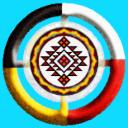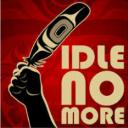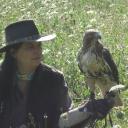Yahoo Answers is shutting down on May 4th, 2021 (Eastern Time) and beginning April 20th, 2021 (Eastern Time) the Yahoo Answers website will be in read-only mode. There will be no changes to other Yahoo properties or services, or your Yahoo account. You can find more information about the Yahoo Answers shutdown and how to download your data on this help page.
Trending News
Wars fought among Native American tribes?
I'd like to know if there are any good books (non-fiction) about Native American tribal warfare and what land of today's American geographical locations did they fight over the most.
Or if you just know of any... post it. not Aztec or Mayan though. Native American only.
Ii’ni’ da’ałhosh..
Are you saying there was no "warrior code" among native americans similar to being like a soldier in the army? I've read a few articles about wars that did go on between native tribes but nothing in great detail. I think it would make for an interesting read. Surely there is some history on it...
5 Answers
- AtheneLv 69 years agoFavorite Answer
Obviously Ii’ni’ da’ałhosh has explained the fact that the American Indians didn't have long lasting wars over territory the way Europeans did. Since they were all little skirmishes, it would be impossible to write a systematic overview the way you can write history books about Europe, for example. Also, you won't find anything prior to European invasion, because the Indians didn't write their own history down.
But if you want to know more about the way Indians fought among themselves, you could start with the autobiography of Black Hawk, which you can download free here:
http://www.gutenberg.org/ebooks/7097
He was a keen old warrior and describes first contact with Europeans, and quite a few battles before the major war he fought with Europeans.
If you want to find out about the preparation for being a warrior and hunter that the Indian boys underwent you could read the autobiography of Charles Eastman (Ohiyesa). He makes reference to the permanent warring situation between the Sioux and Crow tribes.
It's in 2 books downloadable here
Indian boyhood
http://www.archive.org/details/indianboyhood02east...
"From Deep Woods to Civilisation"
http://www.archive.org/details/FromTheDeepWoodsToC...
If you rummage around on this second website you will be able to find other primary sources. If you are interested in learning about Indian history I recommend you do. There are lots of incredibly interesting first-hand accounts by Indians. It's best to read them to learn about all aspects of their culture, not trying to focus only on warfare. They all seem to have been FAR more interested in hunting than warring, for example.
Edit:
WHO HAS DARED TO GIVE ME A THUMBS DOWN? I AM THE ONLY PERSON WHO HAS ACTUALLY ANSWERED THE QUESTION, WHICH WAS ASKING FOR BOOKS TO READ.
Edit:
Ii’ni’ da’ałhosh, that link is very interesting.
I did know that American Indians used pictograms to leave written messages for each other, but I did not know they wrote and kept records of their history in this way.
Can you translate that image you linked to? What historical events is is describing? The name of the web link calls it a calendar....
- ƝɨѕhҠѡeLv 79 years ago
Like the others have said there were no (European style) wars.
But there were disagreement some which resulted in armed encounters with others. Most of these occurred during the period of European colonization and encroachment.
In the East various tribes began moving into the territories of other Nations to avoid contact with the colonizers, breaking long standing treaties/agreements with those Nations. Fighting between isolated factions of those Nations often resulted before treaties/agreements were reached.
During the time of early European colonization, my Nation (the Ojibwe) fought with the Haudenosaunee and the Sioux for that very reason. Again this resulted in isolated skirmishes. At no time did the entire Nation engage in armed conflict.
A (European style) war would have been like David and Goliath. The Ojibwe Nation is a huge Nation far out numbering other Nations, even today.
The Ojibwe, as such a large nation and inhabiting a massive geographical area signed more treaties with the Europeans than any other Nation. Reaching a common agreement (treaties) was the normal means of settling conflicts and ending/avoiding any fighting.
----------
• Are you saying there was no "warrior code" among native americans similar to being like a soldier in the army?
No . . . Not in my Nation. That's European fiction.
The term my people use is "Ogichidaa" which is a protector. Even today when we speak of the "Warrior Society" it identifies those who stand between the conflict and the people. The main goal is to protect by whatever means. The modern military term would be "Peace Keepers".
As Ajidamoon says they were expected to fulfill many more roles in their responsibility in the protection of their people than running off to fight another Nation.
They were the hunters and medicine people who had a sound knowledge of the food sources and medical plants and where they could be found.
Even today our young men (who would be our warriors) are expected to feed the people. They are the ones (at a feast) who are expected to take the food to each person in attendance, or in a less formal setting they are expected to make a plate of food for each elder, before any one else is served.
So No there is no "warrior code" similar to being like a soldier in the army. Their roles are completely different.
.
- 9 years ago
My Nation consistently "fought" with the Haudenosaunee, when lands were encroached upon. Was it war? Nope. And we quickly put our differences aside when it came time to form a confederacy.
The warrior's code has little to do with actual fighting and warfare tactics. It is the understanding of your role in the community, and what must be done to ensure your community's survival. Its bringing meat to an Elder who can no longer hunt. Its taking on another man's wife and children as your own responsibility after he dies.
Source(s): Mississauga Ojibwe - How do you think about the answers? You can sign in to vote the answer.
- AsdzáníLv 79 years ago
Trouble is....we didn't really have very much of that. Many tribes didn't even have a word for "war".
There were over 500 different tribes, many quite small. For example, my nation had over half a million people. Just over our doorstep, there's another teeny little tribe, numbering under 1,000 people. We never fought with them. Why? Because they lived OVER our own recognized tribal borders and we respected that. Sure, there were some raids- and some people would trespass to hunt or fish in another tribe's land. But there were no wars of conquest or extermination going on. Such battles as did occur were often very elaborate affairs, almost ceremonial, and commonly not fatal.
Sometimes inter-tribal disputes were settled by playing games of chance or by sporting contests.
That's not to say we were all peace-loving hippies. Yes, there was sometimes fighting going on. But it was pretty rare, nothing on the scale of the perpetual state of war that Europe evolved out of.
edit********* Well, no one had paid, professional soldiers like european armies did. Men did fight yes, and as I said, there was often a sacred aspect to it. That's one reason why "war paint" has special meaning for us, as well as eagle feathers. And there's the whole "counting coup" tradition, in which you struck an enemy (who must be armed and in full possession of his strength) with your bare hand (or a stick, sometimes even your riding crop) and the dealing of a non-lethal blow to an armed opponent was designed to shame and humiliate him, which was a greater (and more difficult) deed than merely killing him. Basically you were saying " I COULD have killed you, but chose not to, because I'm a better person than you are".
edit*********@ 50 million armed.....I never said we didn't fight. I said there was no large scale fighting going on. As far as knife and tomahawk throwing....You DO realize that tomahawks were iron weapons purchased from whites? And you didn't throw a stone knife, because it would break. (you'd only throw an IRON knife) Those skills, by DEFINITION were developed out of necessity AFTER the arrival of the European invaders.
Kinda presumptuous, isn't it, how some non-natives insist that they must know more about native culture than the natives themselves?
edit************ And........user "50 Million armed" has withdrawn his own answer and retired in shame after I have counted coup upon him. ;)
edit******@ Athene----why do you (and so many others) believe the myth that native americans did not have written history prior to the European invasion? Of course we did. We didn't have an alphabet, and used pictographs (similar to heiroglyphics) but it is a written history nonetheless. Perhaps so many people deny it's existence so they can re-write it themselves? But here is one such written record-
http://nativeamericans.mrdonn.org/plains/calendar-...
******it is actually more usually called a "winter count", or a record of events that happened in one village over the course of a year. I recognize some, but not all, of the symbols, so I'm afraid I couldn't translate it myself accurately.
Source(s): Navajo







